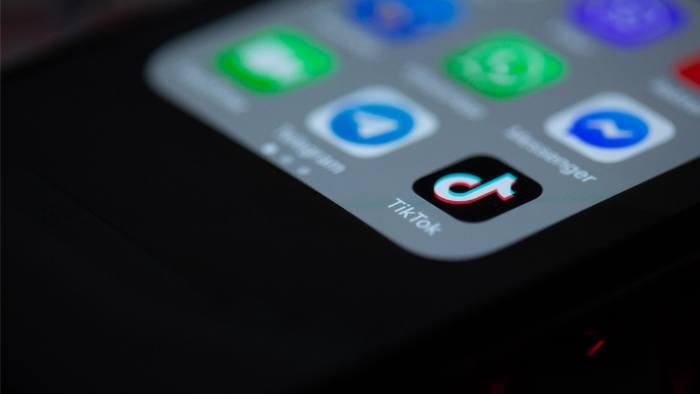Perspective: Why Arguments for Regulating Social Media Fail the First Amendment Test

Should Twitter, Facebook, YouTube, and other social media platforms be able to ban users, including former presidents and members of Congress? Should they be required to remove disputed, misleading or outright incorrect information?
Many Americans are frustrated with social media’s moderation – too much or too little – and some are asking the government to step in.
These companies have their own First Amendment rights. Any attempts to hold them accountable must be accompanied by a compelling government interest and be written narrowly enough to not infringe protected speech. Forcing Twitter to host those with whom the company disagrees or forcing Facebook to police misinformation would not satisfy either of these requirements.
That’s why supporters of government regulation have been seeking new justifications. Many have taken up this task. So far, all have failed.
Misinformation and the First Amendment
State legislatures in New York and Washington tried to tackle misinformation online. Neither of the states’ bills have passed, and both appear clearly unconstitutional because the First Amendment protects the general right to make false statements (other than the narrowly defined areas of defamation or false advertising).
Some states have attempted to prevent social media platforms from suspending, banning or otherwise punishing speakers who violate their broad terms of service. Bills introduced in Texas and Florida have been immediately – and successfully – challenged in court. Similar bills have been introduced in Georgia and Ohio.
These four bills have taken three paths to ensure compliance with the First Amendment. All four try to reclassify social media sites as “common carriers.” Ohio and Georgia seek to designate social media as a “public forum,” with Ohio also trying to attach “public accommodation” status as well.
Here is what each of those terms means and how they may or may not apply to social media.
Social Media as a Common Carrier
What is a common carrier?
A common carrier is a service that holds itself out to all members of the public in providing essential goods and services for a fee. Think railroads, phone companies, utilities, etc.
Why use this as a basis for regulating social media?
In part because they usually have near-monopoly control over their industry, common carriers are prohibited from discriminating among customers based on content. For example, the phone company cannot allow calls from one group of people but not others. If a traditional telephone company is a common carrier by virtue of its use of a digital network to connect people, then a digital platform must be as well. As a common carrier, social media companies would be required to treat all users equally.
Why this comparison doesn’t work
It has been rejected by federal courts in Texas and Florida. In preventing enforcement of the Texas law, a federal judge explained that “social media platforms are not mere conduits” for others’ speech. Their screening, moderating and curating of users’ speech differentiates them from Internet providers and telephone companies.
More fundamentally, social media companies are not like phone, water, or power companies because they don’t charge a fee for access. Common carriers are forced to treat everyone equally because everyone needs them and should pay a fair price. But social media is free and theoretically doesn’t need the same protection for users who have other options.
Social Media as a Public Forum
What is a public forum?
The concept of a public forum predates the Constitution – and the country – itself. A public forum exists when the government opens property for expressive activity. Think the village green.
Why use this as a basis for regulating social media?
Once the government designates property as a public forum, it must allow all to enjoy the right to speak. Even in those instances where the public forum designation is limited in time or place, all speakers must be treated equally. There cannot be any viewpoint discrimination.
The size and reach of social media platforms combined with their express purpose of promoting the exchange of ideas arguably transforms these private businesses into the modern-day, digital equivalent of the public square.
Why this comparison doesn’t work
The government can only designate its own space as a public forum. Courts have repeatedly held that a private business hosting a forum for speech does not automatically create a public forum. In fact, a California court specifically disagreed with an attempt to classify YouTube as a public forum. The Supreme Court has held that even public access channels required by law to be included on cable systems are not public forums for speech.
Social Media as a Public Accommodation
What is a public accommodation?
A public accommodation provides services such as lodging, food, entertainment, etc. to the public in general.
Why use this as a basis for regulating social media?
The federal Civil Rights Act of 1964 prohibits public accommodations from discriminating on the basis of race, color, religion, sex, or national origin (known as “protected classes”).
The Internet is like a public place of business that is used every day. People book lodging, order food and seek out entertainment online just as much as they do in person.
Public accommodation requirements could prevent a social media platform from suspending or banning a speaker based on any of the protected characteristics or allowing discriminatory content in their posts.
Why the comparison doesn’t work
Courts are split on the issue. But most have held (in cases related to the Americans with Disabilities Act) that laws preventing discrimination in public accommodations only apply to physical businesses, not websites or other online-only businesses.
Even if they were subject to laws applicable to public accommodations, social media sites would still be able to favor certain political views over others, as political belief or party is not a protected class.
Is There Another Way?
Rather than broadly regulating the content of social media, the eventual result most likely resides in targeted efforts to reduce the platforms’ near-monopolies and give users more control over the additional options that might become available.
There are already efforts in Congress to use antitrust law to reduce the market power enjoyed by Twitter, Facebook, YouTube, and others. A few include the American Innovation and Choice Online Act, the Open App Markets Act and the Journalism Competition and Preservation Act. That might open the market to additional competition and allow users to choose the social media sites that best suit them.
Kevin Goldberg is First Amendment specialist for the Freedom Forum. He can be reached at [email protected].
How A Famed Author Of Children’s Literature Is Facing The Book Banning Trend
Protesting on College Campuses: FAQs Answered
Related Content
$30,000 Giving Challenge
Support the Freedom Forum’s First Amendment mission by Dec 31st and double your impact.

